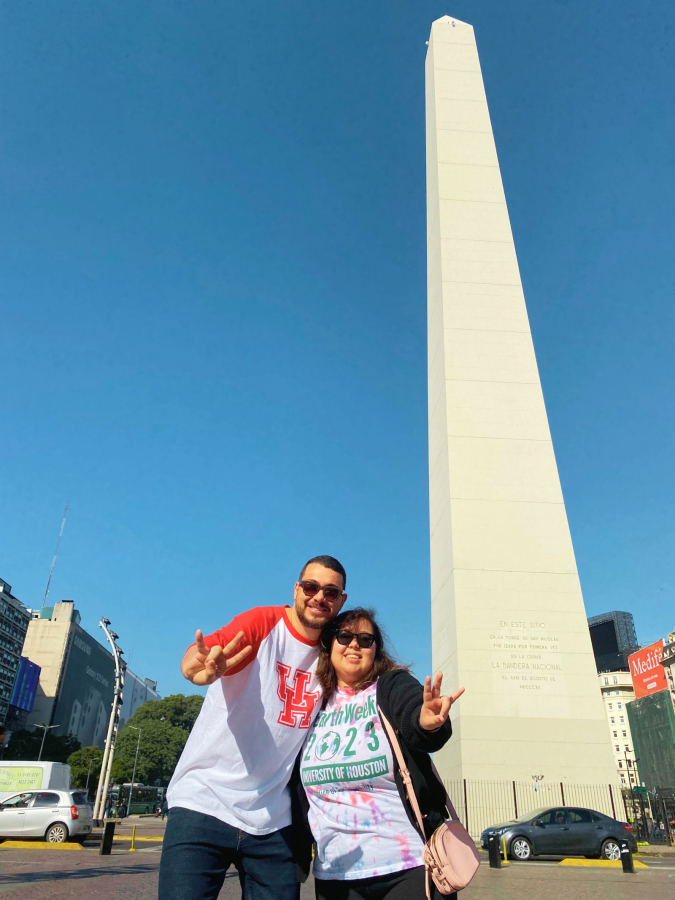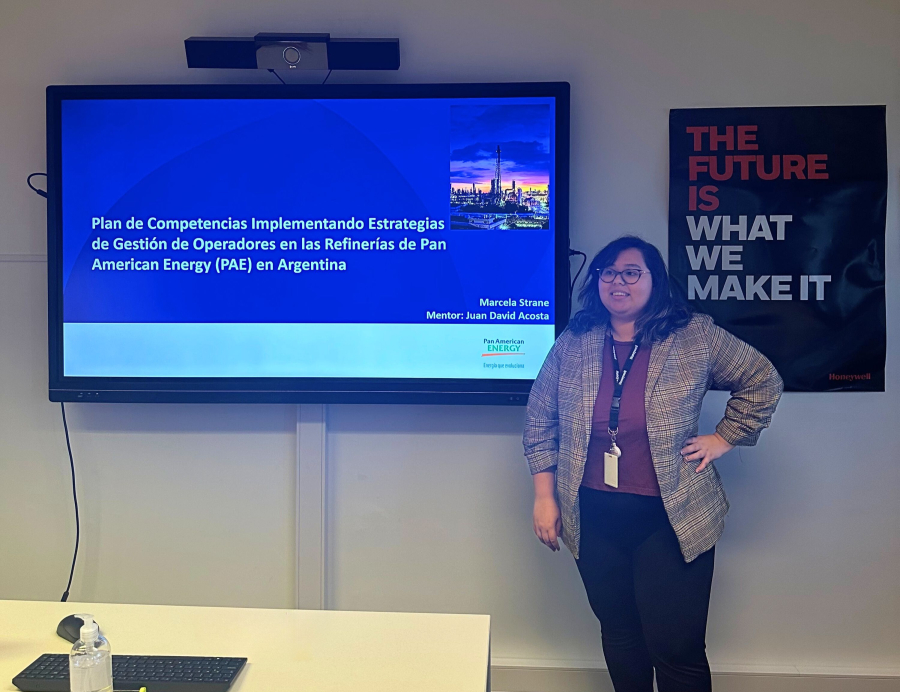Stop us if you've heard this one before: a petroleum engineer and an environmental engineer fly to Argentina to participate in the interscholastic Argentina Business Internship Program (ABIP), where they not only spend two months building upon their world-class University of Houston educations with hands-on fieldwork experiences, but also forging strong international relationships within their respective specialties while absorbing the local language, cultural opportunities and excitement of daily life in a foreign country.
Environmental Engineering graduate student in the Shaffer Lab Marcela Strane and UH graduate Thales Souza (Master of Science in Petroleum Engineering, 2022) spent two months as ABIP interns this summer, developing valuable knowledge and skills as they worked alongside other students and fellow professionals representing Pan American Energy, Honeywell, Tenaris, CGC and Techint in Argentina. Each intern holds a slightly different position, so while Souza spent his time in the field at the Vaca Muerta formation working on a project to optimize deflating its natural gas wells and define low-pressure control of natural gas wells for Pan American Energy, Strane held a more traditional nine-to-five office role that focused on technology solutions and maintaining international standards for Honeywell.
"In the US, Honeywell is really big, but in Argentina they have one office that's supposed to cover Chile, Uruguay, Argentina and Brazil. They're more focused on technology solutions and they don't own any refineries, but I got to visit and incorporate what Pan American Energy is doing so that I could develop on the solutions Honeywell already has and best help PAE's operations in upstream and downstream processes,” Strane said. “These solutions will help train their operators so that they're safe and complying to both national Argentinian and international standards. It's an experience that I've never had, being that I'm an environmental engineer and not a petroleum engineer, so it was awesome to be selected to go.”
She added, "Many operators don't get the opportunity to experience the full lifetime of what a refinery goes through as far as startups, shut-downs, emergencies or disaster management. That was very distinct and I'm not sure if I would have found that experience here in the United States."
Souza echoed her sentiment.
"I developed a control table and conducted some inspections in the Vaca Muerta wells to comply with well control and management standards,” Souza said. “Although it's only two months long, the internship was optimized so that we spent most our time working on our projects to maximize our experiences. I didn't have field experience before going to Argentina, and that was the main point that made me apply for and accept this internship. My previous internships while in graduate school were focused on reservoir modeling and simulation as opposed to literal field experience, so I found this opportunity very interesting."
The Vaca Muerta formation holds one of the largest unconventional natural gas and oil reserves in the world and is similar to Texas' Permian Basin. It's a new exploration, meaning things are still in early stages and there are ample opportunities for innovation and to apply unconventional technologies and new approaches.
"I had heard about it before in graduate school but having the chance to actually work in the Vaca Muerta formation and deposits was incredible,” Souza said. “It's one of the largest unconventional petroleum reservoirs in the world, and it wouldn't have been possible for me to have this same experience in the U.S. I'm really glad that I had this opportunity to complement what I learned at the University of Houston. It was also nice to meet new people from Argentina and from the United States. We had six or seven petroleum engineers from different universities around the US in the program, so it was great to network with people from other universities, too."
The program hosts both national and international students, so this year's 22 international students (including Souza and Strane) were joined by roughly 300 Argentinian students from different regions of the country. With more companies having recently joined the program, Strane estimates that this was probably the program's largest cohort to date. That growth is exactly what participating companies are hoping for.
"I think one question that many of the interns had was 'Why does Pan American Energy do this?' Argentina's economy is a bit more volatile [than that of the US], so it's a lot harder for U.S. Americans to be able to move there and take on a salary there,” Strane said. “But Pan American Energy is really trying to breakthrough into renewables and not just stick with petroleum anymore. They're trying to grow while working on their sustainability efforts, and they need more diverse people-power. Recruiting from universities in the US helps that happen and opens up new possibilities for the future.”
![Environmental Engineering graduate student in the Shaffer Lab Marcela Strane and UH Petroleum graduate Thales Souza [pictured] spent two months as ABIP interns this summer in Argentina. Environmental Engineering graduate student in the Shaffer Lab Marcela Strane and UH Petroleum graduate Thales Souza [pictured] spent two months as ABIP interns this summer in Argentina.](/sites/ccoe.egr.uh.edu/files/images/news/2023/thales-souza-01-crop.jpg)

